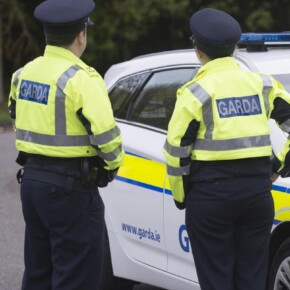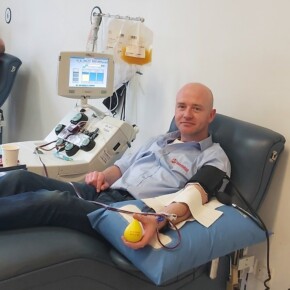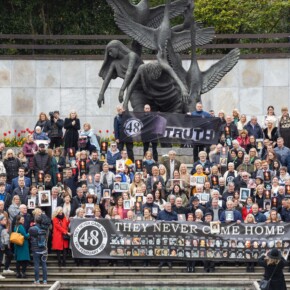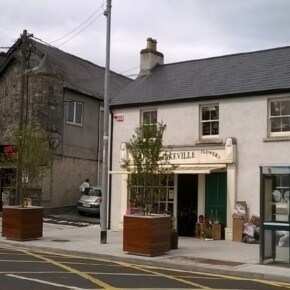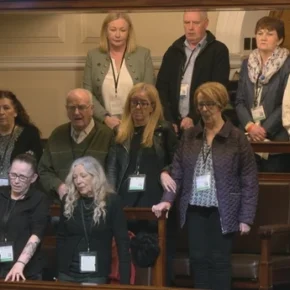Green vote up for grabs in South-West Inner City
Mike Finnerty 27 Mar 2024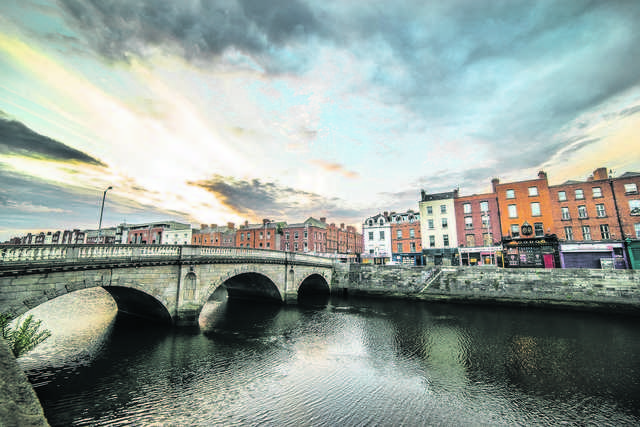
Our latest set of constituency breakdowns takes us to South-West Inner City.
The sight of Michael Pidgeon’s landslide win in 2019, Pidgeon’s win marked a high watermark for the Greens that year.
Getting elected on the first count with 22% of first preferences is a remarkable achievement for an election candidate, even more so considering it was Pidgeon’s first bite of the apple.
We’ve talked at length about the Green wave in 2019 but for those just joining us, the Green success can be boiled down to it simply being a matter of right place, right time.
A burgeoning climate summer movement in mainland Europe, general apathy with a government on its last legs and people wanting a new voice on Dublin City Council helped turbocharge the Green vote in 2019 across Dublin and nationwide.
In 2024, it is a very different set of circumstances; the Green project has turned sour for many.
The coalition of voters that gifted the Greens their best-ever election results in 2020 has fractured.
Want to vote for a party that is a protest vote against Government? Vote for Sinn Féin.
Want a left-of-centre party that won’t sell out their principles the second they sniff power? Vote for People Before Profit.
Want a left-of-centre party that has arguably better climate policies than the Greens but won’t do anything mental like trying to dismantle capitalism? Vote for Labour or the Social Democrats.
This crash course in political theory is incredibly important in the context of South-West Inner City; there is no question that Michael Pidgeon will keep his seat, but it will not be with 22% of first preferences.
In fact, it’s not unreasonable to think he could still be elected with 11% of first preferences, but the other 11% is spread out among other progressive parties.
That is the prize up for grabs.
With a 5-seater, every percentage or half percentage point counts, so if as much as half of the previous poll-toppers votes are in play it is up to the other parties on the ballot to impress voters.
Sinn Féin are the most explicit about wanting to hoover up that sweet surplus of votes and will be running three candidates here.
The incumbent Máire Devine will be joined by David Augusta and Darragh Reid on the ballot.
There is no excuse for Sinn Féin to get 2 candidates elected here; should they get 3 candidates elected in a 5-seater it will cause pollsters and analysts to tear their hair out and redo their calculations.
At a Dáil level, South-West Inner City is in Dublin South Central.
Political geeks will know this is one of the most left-wing friendly constituencies in the country.
South-West Inner City only came into being in the 2019 locals, but if you combined the first preference votes of left-of-centre parties on the ballot it would add up to 47.9%.
In 2019, when the Greens weren’t in Government and had a somewhat progressive reputation like their continental cousins, that vote total jumps to 70.5%.
What the hell inspired Renua to run a candidate here in 2019 is a mystery only Columbo could solve.
Fianna Fáil, Fine Gael and Aontú will all be running candidates here in June (and we will get to them later), but it will be a difficult afternoon for those parties.
Fianna Fáil did get someone elected here in 2019 with a healthy 10.7% of first preferences, (Michael Watters was the man in the hot seat that day) and the party will be hoping to get Ammar Ali elected here in 2024.
Ali’s CV mentions his past in Órga Fianna Fáil and serving as secretary of the South Dublin branch of the party, so the party are looking to get one of their young guns onto Dublin City Council.
Fine Gael’s local elected rep Ian Nunoo will be lining out for the party, and it is worth noting Fine Gael were the final party eliminated in 2019.
8.2% of first preferences is a solid base for a candidate to build on, and considering Pidgeon’s surplus is also likely to appeal to Government party supporters as well it is not impossible for Fine Gael to get their candidate elected in this neck of the woods.
People Before Profit were successful in getting Tina MacVeigh elected onto Dublin City Council in 2019 and the task has now fallen to their Dublin Bay South representative Brigid Purcell to secure a seat.
To quote Troy McClure, you may remember Purcell from being PBP’s candidate in the Dublin Bay South by-election in the summer of 2021.
Having a somewhat larger media profile thanks to running in a highly publicised by-election will be an advantage the other candidates don’t have.
We have written about the Southside of Dublin being People Before Profit’s strongest area, and considering how much has been made of Sinn Féin’s move towards the centre in their bid for power a win for Purcell would be a perfect example that Sinn Féin are taking their usually dedicated left-wing base for granted.
The Social Democrats will be running Jen Cummins again, and while we only have 2 sets of elections to go off the party being transfer-friendly could be their saving grace here.
The Sockies are heading into June with the intention of performing as well as the Greens did in 2019, and a victory here would be a true show of power.
South Dublin isn’t necessarily what one thinks of when they think of strong performances for the Social Democrats so it is a true stab in the dark trying to figure out what their ceiling is or what even makes a good day for them in this constituency.
If they win a seat here, it could show that the party has surprising strength and is ready for prime time.
On the Labour front, this area used to be the haunt of Senator Rebecca Moynihan.
Since 2019, Moynihan ran a fairly unremarkable general election campaign in Dublin South Central but was then elevated to the Seanad.
Darragh Moriarty was co-opted onto Dublin City Council in her place and has since established himself as one of Labour’s most tenacious public reps.
Facing off against 3 Sinn Féin candidates, a People Before Profit candidate with a point to prove, and a Social Democrats candidate looking to build on a strong 2019 performance, Moriarty is facing a tough challenge.
However, Moynihan’s strong performance in 2019 (as well as her two previous election victories in the precursor to this constituency) offers a sliver of hope for Moriarty.
The wildcard in the pack is Aontú’s Aisling Considine.
Considering Aontú didn’t run a candidate here last time there is no telling how they will get on, and indeed if there is an appetite for socially conservative yet somewhat economically centre-left brand of politics.
2024 is only the second round of local elections that Aontú are facing, and while the party aren’t usually seen as an urban party a deposit-saving performance here would show there is indeed an appetite for their particular style of politics be it in the inner cities or rural Ireland.
Breaking through the noise will be the key target for Considine here; how exactly does she stand out from the rest of the other candidates?
5-seaters are, in theory, more friendly to smaller parties such as Aontú and PBP, but if you were to place a bet on which party will succeed in South-West Inner City you’d be well placed to bet on red.


